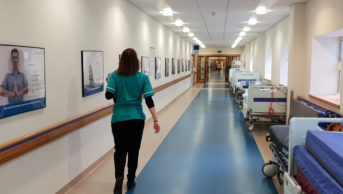
Emma Page
A lack of “skill mix” among pharmacists is a potential barrier to the investment in the sector that is detailed of the ‘NHS Long-Term Plan’, the deputy chief pharmaceutical officer for England has warned.
Speaking at the pharmacy All-Party Parliamentary Group (APPG) on 15 January 2019, Bruce Warner, the deputy chief pharmaceutical officer for England, said the uptake of places on leadership and clinical programmes, which were designed to improve skill mix among pharmacists, had been “poor”, despite having a “significant amount of money” committed to them.
He said the lack of skill mix in the sector could be a barrier to the investment promised to pharmacy and primary care. In the plan, the NHS committed £4.5bn to the creation of “expanded community multidisciplinary teams”, which would include pharmacists, to work alongside primary care networks of GP practices covering 30,000 to 50,000 patients.
Bruce Warner’s comments came in response to a question from the committee on “the next steps in achieving that investment” and “the barriers to enabling us to get to that point”.
Warner replied: “In terms of barriers I think we need to make sure the skill mix is right. We need to make sure people have the right skills and the confidence to do what is being asked of them.”
“We have committed a significant amount of money to that, particularly in terms of bespoke training programs for pharmacists,” he said, adding that this includes both clinical and leadership training programmes.
But he continued: “The uptake for that has been mixed. Certainly the uptake on the leadership programmes being offered has been poor. Some of the uptake on the clinical programmes has been less than we would have hoped as well.”
He noted that part of the reason for poor uptake on leadership programmes could be workforce issues, adding that “there are also some parts of the sector that perhaps don’t see it as a priority”.
“We feel [pharmacists] have a lot of potential, a lot to offer, particularly if community pharmacy and pharmacy within primary care networks are going to step up and take a role then we need equip pharmacists both with the confidence and the skills to actually vie for those leadership roles.”
At the APPG meeting, Warner also defended the document’s use of the phrase “clinical pharmacist”, saying that while pharmacists “are all trained the same” initially, “the training throughout our careers leads us down a certain path and so I think there are distinctions”.
In general practice, he explained, pharmacists are handling “patient-facing clinical medication reviews — sometimes quite complex clinical cases”.
He continued: “I’m afraid, I don’t accept that all pharmacists can do everything just because they’re a pharmacist.”
Julie Cooper, Labour Party MP for Burnley, who raised the issue with Warner, said it was “regrettable” that the term “has been used to deride community pharmacists’ contribution” and has created an “implication of a lesser quality” of care.
However, Warner clarified that not all the pharmacists working in primary care networks will be based in general practice.
He said: “There is a commitment in the long-term plan to put more pharmacists into those primary care networks and it doesn’t talk about them being based necessarily in general practice — so there’s no reason why they can’t be working in different physical settings within that primary care network.”


